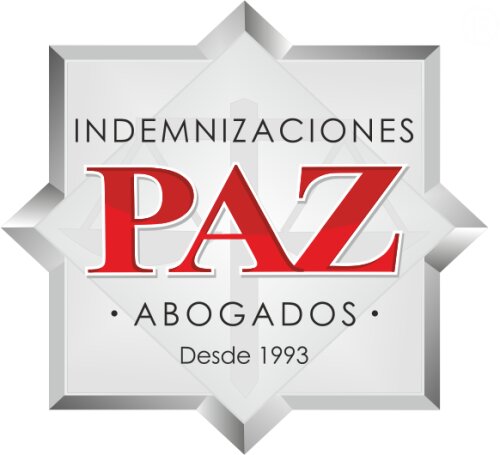Best Agriculture Lawyers in Pasto
Share your needs with us, get contacted by law firms.
Free. Takes 2 min.
List of the best lawyers in Pasto, Colombia
About Agriculture Law in Pasto, Colombia
Pasto, the capital of Nariño in southwest Colombia, is a region rich in agricultural heritage. The surrounding areas have fertile volcanic soils and a mild climate, supporting the production of crops like potatoes, corn, wheat, legumes, and dairy products. Coffee cultivation is also significant, and livestock farming is prevalent. Agriculture is vital for the local economy and food security, with many families depending on it for their livelihoods. Consequently, agricultural activities are closely tied to land use, rural property rights, labor regulations, and environmental protection.
Agriculture law in Pasto covers a wide range of legal matters including property rights, land leasing, water use, environmental requirements, government subsidies, cooperative organizations, and import-export of agricultural goods. Both national and local laws oversee how farming is conducted, making it important for anyone involved in the sector to understand the legal landscape.
Why You May Need a Lawyer
Engaging in agriculture in Pasto can present various legal challenges where a lawyer’s advice can be essential. Common situations include:
- Disputes over land ownership or boundaries.
- Issues with leasing agricultural land or negotiating rental contracts.
- Complications in transferring rural property or inheriting farmland.
- Legal requirements for forming or running agricultural cooperatives and associations.
- Compliance with environmental laws, especially regarding pesticide use, water management, and waste disposal.
- Navigating agricultural subsidies, taxation, and incentive programs available through local or national government.
- Labour matters including fair contracts, insurance for employees, and occupational safety regulations.
- Resolving conflicts with neighbors about water rights or land use.
- Handling licensing or certification for export crops and organic labeling.
- Facing sanctions or fines by regulatory bodies for alleged non-compliance.
Local Laws Overview
Agriculture in Pasto is governed by a mix of national laws and regional regulations. Some relevant legal aspects include:
- Land Ownership and Use: The regime for rural property is regulated by the Colombian Civil Code, agrarian reform laws, and local ordinances. Legal processes for buying, selling, and leasing land must comply with precise protocols and registration with the Superintendencia de Notariado y Registro.
- Environmental Regulation: Agriculture in Pasto is subject to rules set by the Ministerio de Ambiente y Desarrollo Sostenible and local environmental authorities (like CORPONARIÑO). These laws cover water usage, soil conservation, use of agrochemicals, deforestation controls, and wildlife protection.
- Labor Laws: Hiring farm workers requires compliance with the Código Sustantivo del Trabajo, including contracts, minimum wage, health, and pension contributions.
- Subsidies and Incentives: The Colombian government offers support through instruments such as Finagro loans, Agro Ingreso Seguro, and insurance for crops and livestock. Understanding requirements is crucial for eligibility.
- Agricultural Organizations: Special laws govern the creation and operation of cooperatives, sociedades agrarias, and producer associations.
- Health and Safety: There are strict sanitary and phytosanitary standards for both local consumption and export. These concern processing, packaging, and transportation of agricultural products.
Frequently Asked Questions
What documentation is required to buy or sell agricultural land in Pasto?
You will need the property title, the seller’s identification, certificates of tradition and freedom, up-to-date tax payments, and a contract witnessed by a notary. Registration with the local registration office is mandatory.
What should I do if there is a dispute over a property boundary?
It is recommended to seek mediation and, if unsuccessful, consult a lawyer. Legal action may be pursued through the civil courts, and expert surveys (peritajes) may be required to determine boundaries.
How can I access government subsidies for farming in Pasto?
Farmers may apply through organizations like Finagro or the Ministry of Agriculture. You’ll need to meet specific criteria and provide supporting documentation, such as land registration and a business plan.
What environmental regulations must I follow when using pesticides or fertilizers?
The use of pesticides and fertilizers is regulated by national and local authorities. You must use only approved substances, store and dispose of them safely, and comply with restrictions to protect nearby water sources and communities.
Are there special requirements for exporting agricultural products from Pasto?
Yes, exports require sanitary and phytosanitary certificates, compliance with international standards, and registration with INVIMA or ICA, depending on the product.
What is the process for forming an agricultural cooperative?
You must draft bylaws, elect a board of directors, register the cooperative with the Chamber of Commerce, and comply with local and national cooperative regulations.
How are agricultural labor contracts regulated?
Labor contracts must meet standards for wages, benefits, work hours, social security, and occupational safety according to Colombian labor law. Both permanent and seasonal contracts require proper documentation.
What happens if my farm is affected by a natural disaster?
You should notify local authorities and the insurance company if you have coverage. Government agencies may provide disaster relief or compensation programs in some cases.
How do I obtain water rights for irrigation?
You must apply to the local environmental authority (such as CORPONARIÑO) for a water concession, providing project justification, technical studies, and compliance with environmental impact requirements.
Can foreigners own agricultural land in Pasto?
Yes, foreigners can own land in Colombia, including agricultural land, unless it is located in border or strategic areas subject to restrictions. Legal advice is recommended for compliance with all requirements.
Additional Resources
If you need information, guidance, or support for your agricultural activities in Pasto, the following resources may be helpful:
- Ministerio de Agricultura y Desarrollo Rural: Offers programs, subsidies, and legal regulations for agricultural activities in Colombia.
- Gobernación de Nariño - Secretaría de Agricultura: Provides local guidance, technical assistance, and information on regional agrarian policies.
- Instituto Colombiano Agropecuario (ICA): Responsible for sanitary and phytosanitary controls, export certifications, and animal-plant health matters.
- Corporación Autónoma Regional de Nariño (CORPONARIÑO): Manages environmental permits, water rights, and conservation guidelines.
- Cámara de Comercio de Pasto: Assists with registration of businesses, cooperatives, and other legal entities.
- SENA: Provides training and consulting services for agribusiness management and labor matters.
- Notarías and Registradurías: Handle public deeds, contractual formalities, and property registration.
Next Steps
If you require legal assistance in agricultural matters in Pasto, Colombia, consider the following steps:
- Gather documentation related to your situation, such as property titles, contracts, permits, and correspondence.
- Identify the specific problem or question you have - for example, land disputes, labor issues, or regulatory compliance.
- Contact a local lawyer who specializes in agriculture law or rural property matters. You can request recommendations from the Chamber of Commerce, agricultural cooperatives, or legal directories.
- Set up an initial consultation to discuss your case, present your documents, and receive guidance on legal options.
- Follow your lawyer’s advice on next actions - whether negotiating, formalizing agreements, or initiating legal proceedings.
- Stay informed about relevant laws and regulations to prevent future legal problems, and consider joining local producer associations for community support.
Lawzana helps you find the best lawyers and law firms in Pasto through a curated and pre-screened list of qualified legal professionals. Our platform offers rankings and detailed profiles of attorneys and law firms, allowing you to compare based on practice areas, including Agriculture, experience, and client feedback.
Each profile includes a description of the firm's areas of practice, client reviews, team members and partners, year of establishment, spoken languages, office locations, contact information, social media presence, and any published articles or resources. Most firms on our platform speak English and are experienced in both local and international legal matters.
Get a quote from top-rated law firms in Pasto, Colombia — quickly, securely, and without unnecessary hassle.
Disclaimer:
The information provided on this page is for general informational purposes only and does not constitute legal advice. While we strive to ensure the accuracy and relevance of the content, legal information may change over time, and interpretations of the law can vary. You should always consult with a qualified legal professional for advice specific to your situation.
We disclaim all liability for actions taken or not taken based on the content of this page. If you believe any information is incorrect or outdated, please contact us, and we will review and update it where appropriate.









